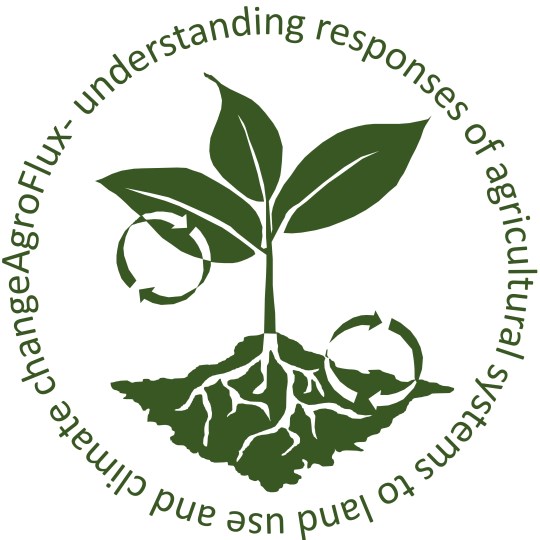AquaTrans (Integrated Priority Project (IPP) of ZALF 2024) - Promoting Improved Water Use through an Integrative Assessment of the Transition to Agroecology in Northern GhanaThis project aims to generate new insights into the conditions enabling agroecological transitions in northern Ghana. It combines a farmer-centered multi-criteria assessment of agroecological cropping systems with process-based measurements of water and carbon cycle components to optimize crop productivity and sustainable water use. Additionally, it explores key social variables and tests social learning models to understand factors that hinder or support agroecological change. Partner: Dr. habil. Maren Dubbert; Dr. Mathias Hoffmann; Dr. Johannes Schuler; Dr. Michael Asante (CSIR-Savannah Agricultural Research Institute, Tamale, Ghana), Edem Halolo Duration: 01.01.2024 - 31.12.2026 Funder: ZALF ISO-SCALE - Stable isotopes and AI-supported model development for high-frequency, cross-scale water partitioningThe goal of ISO-SCALE is to develop a novel, integrated understanding of precipitation partitioning across plant-soil-atmosphere compartments and spatial scales (from 10⁻² to 10⁸ m²). Focusing on vegetation-mediated SPAC feedbacks, the project investigates the temporal dynamics and spatial variability of evapotranspiration, soil evaporation, plant transpiration, soil water distribution, and root water uptake. By combining stable water isotopes, AI, and process-based modeling, ISO-SCALE will deliver a transferable high-frequency water partitioning framework to improve agricultural resilience under climate extremes. Partner: Dr. habil. Maren Dubbert, Prof. Dr. Gunnar Lischeid, Dr. Mathias Hoffmann, Dr. Gökben Demir, Kenneth Jesus Gutiérrez-García, Adrian Dahlmann, Prof. Dr. Alexander Knohl 8University Göttingen, Germany), Prof. Dr. Dörthe Tetzlaff (Leibniz Institute of Freshwater Ecology and Inland Fisheries, Berlin, Germany) Duration: 01.03.2023 - 31.12.2026 Funder: Leibniz-Association (SAW) AidCrop - Amorphous Silica in Soils and Plants Enhances Crop Drought Stress ToleranceThe aim of the project is to investigate silicon-dependent mechanisms that influence water availability in soils and plants. We seek to understand how Si affects water retention, transport, and uptake processes. This knowledge will support the development of sustainable strategies for improving drought resilience in cropping systems. Partner: Prof. Dr. Jörg Schaller, Dr. Maren Dubbert, Prof. Dr. Michael Sommer, Dr. Mathias Hoffmann, Wael Al Hamwi Duration: 01.02.2022 - 31.12.2025 Funder: Leibniz-Association (SAW) rePRISING - Reuse of Crop Residues in Pineapple Cultivation to Improve Nutrient Cycling, Reduce Greenhouse Gas Emissions, and Enhance the Income of Smallholder FarmsThis project aims to generate new insights into the conditions enabling agroecological transitions in northern Ghana. It combines a farmer-centered multi-criteria assessment of agroecological cropping systems with process-based measurements of water and carbon cycle components to optimize crop productivity and sustainable water use. Additionally, it explores key social variables and tests social learning models to understand factors that hinder or support agroecological change. Partner: Dr. Mathias Hoffmann, Dr. Pearl Sanchez (University of the Philippines, Los Banos, Philippines), Reena Macagga Duration: 01.02.2020 - 31.12.2023 Funder: Federal Ministry of Food and Agriculture (BMEL) Krumensenke - Reducing the Environmental and Climate Impact of Energy Crop Cultivation through the Benefits of Optimized Topsoil Deepening TechniquesThe overall aim of the project is to determine whether the technique of ameliorative, partial topsoil deepening (pKV) can be optimized through an interdisciplinary research approach to achieve lasting reductions in the environmental and climate impacts of energy crop production under practical farming conditions. This includes (i) developing and demonstrating the feasibility of pKV combined with site-specific tillage, (ii) assessing its short- and long-term potential for additional carbon and nitrogen storage in soils, (iii) reducing greenhouse gas emissions and nitrogen losses, (iv) evaluating effects on plant growth and yield, and (v) conducting a comprehensive ecological and economic assessment. Partner: Prof. Dr. Michael Sommer; Prof. Dr. Jürgen Augustin; Dr. Mathias Hoffmann; Dr. Gernot Verch; Dr. Heinz Stichnothe ("Thünen Institute of Agricultural Technology, Braunschweig, Germany), Dr. Katja Kramp, Dr. Shrijana Vaidya Duration: 01.06.2019 - 31.03.2024 Funder: Fachagentur für Nachwachsende Rohstoffe (FNR)
|

